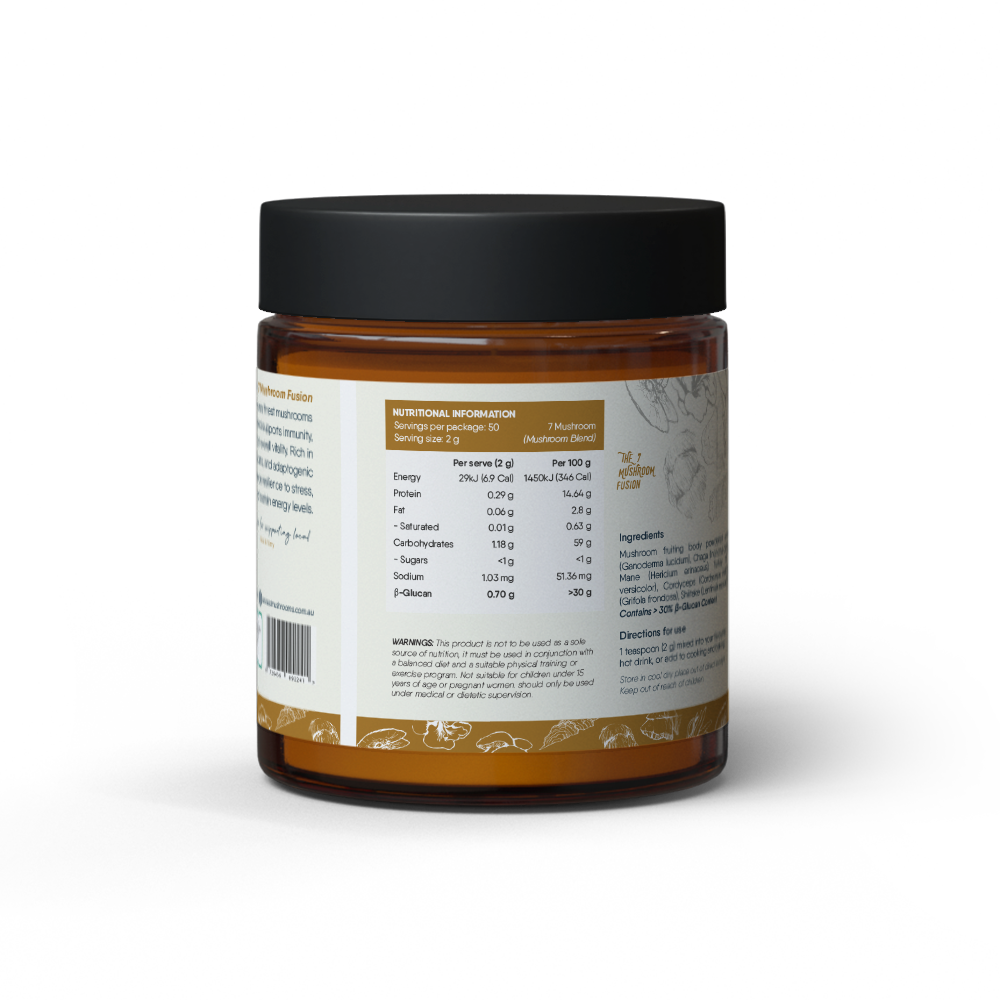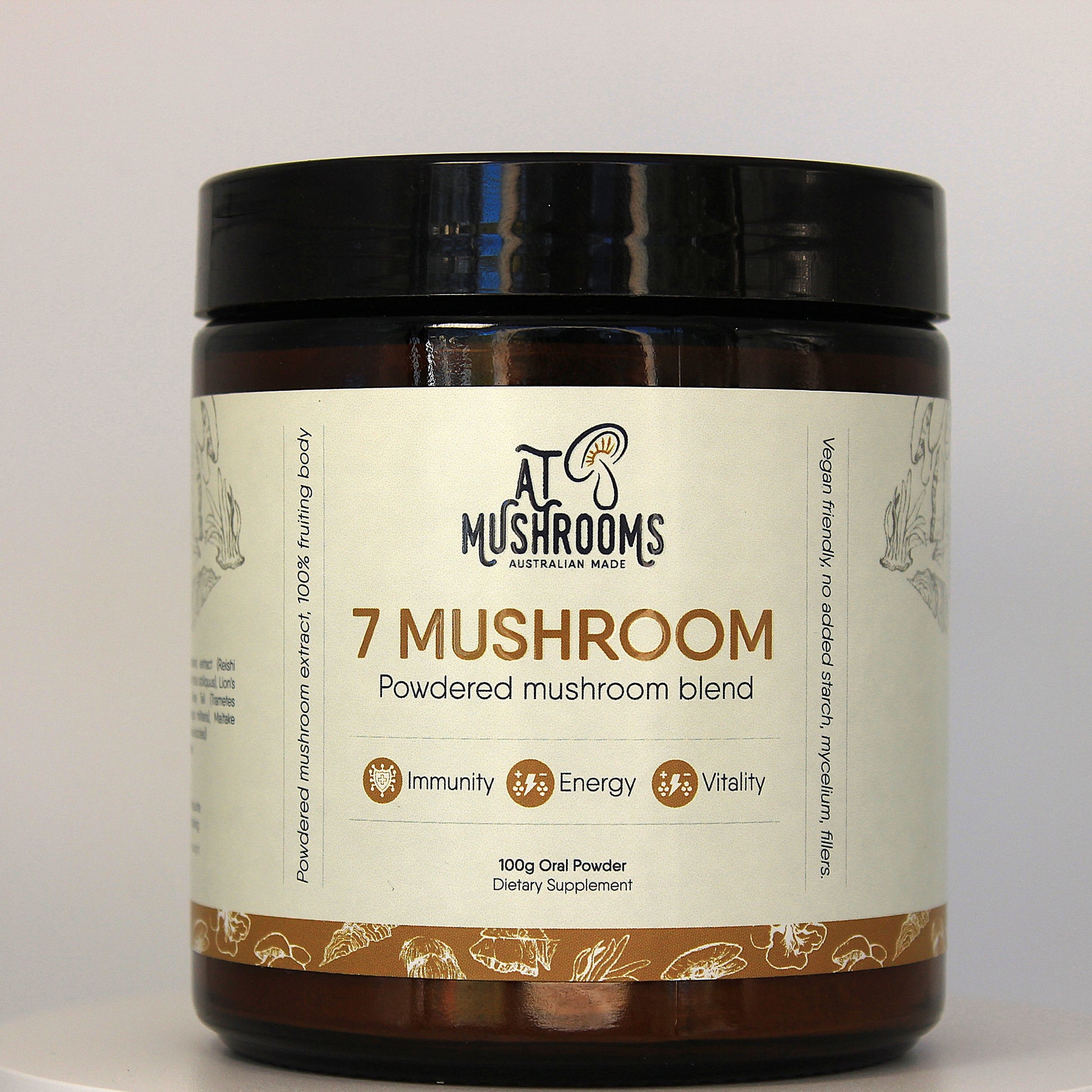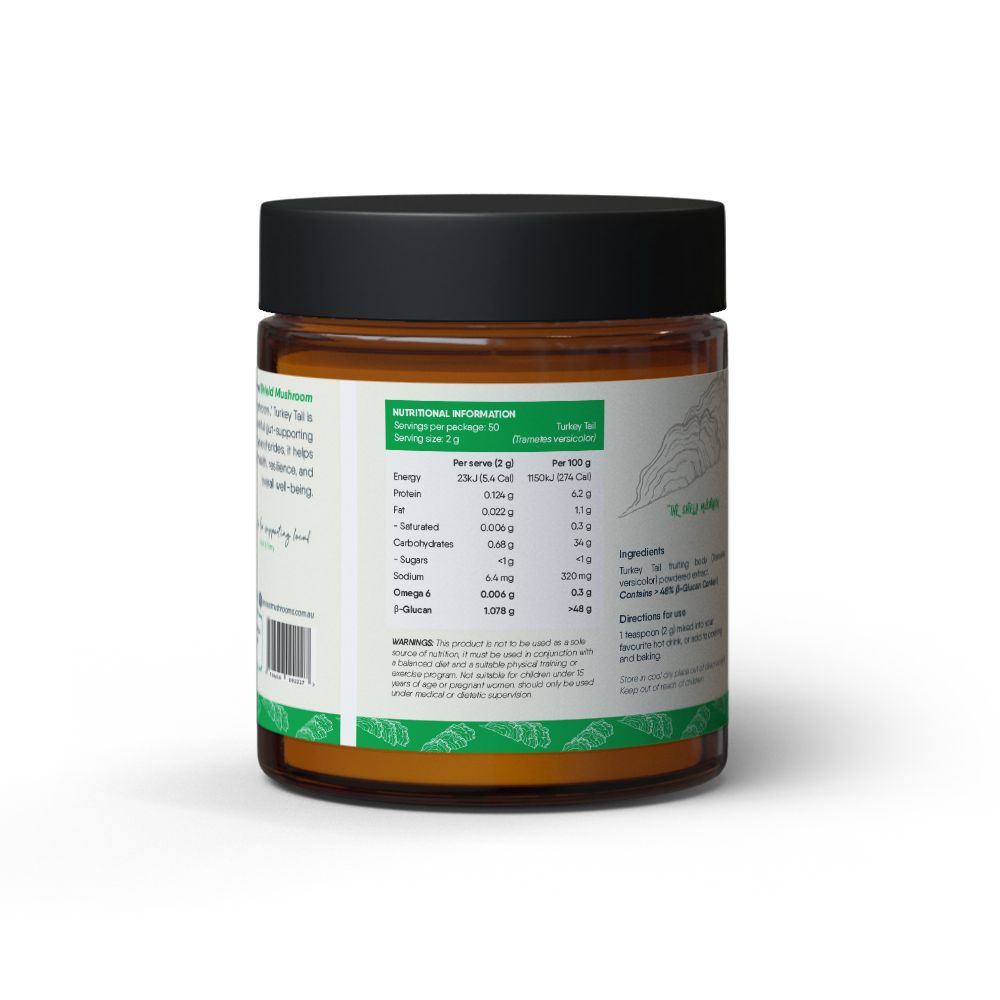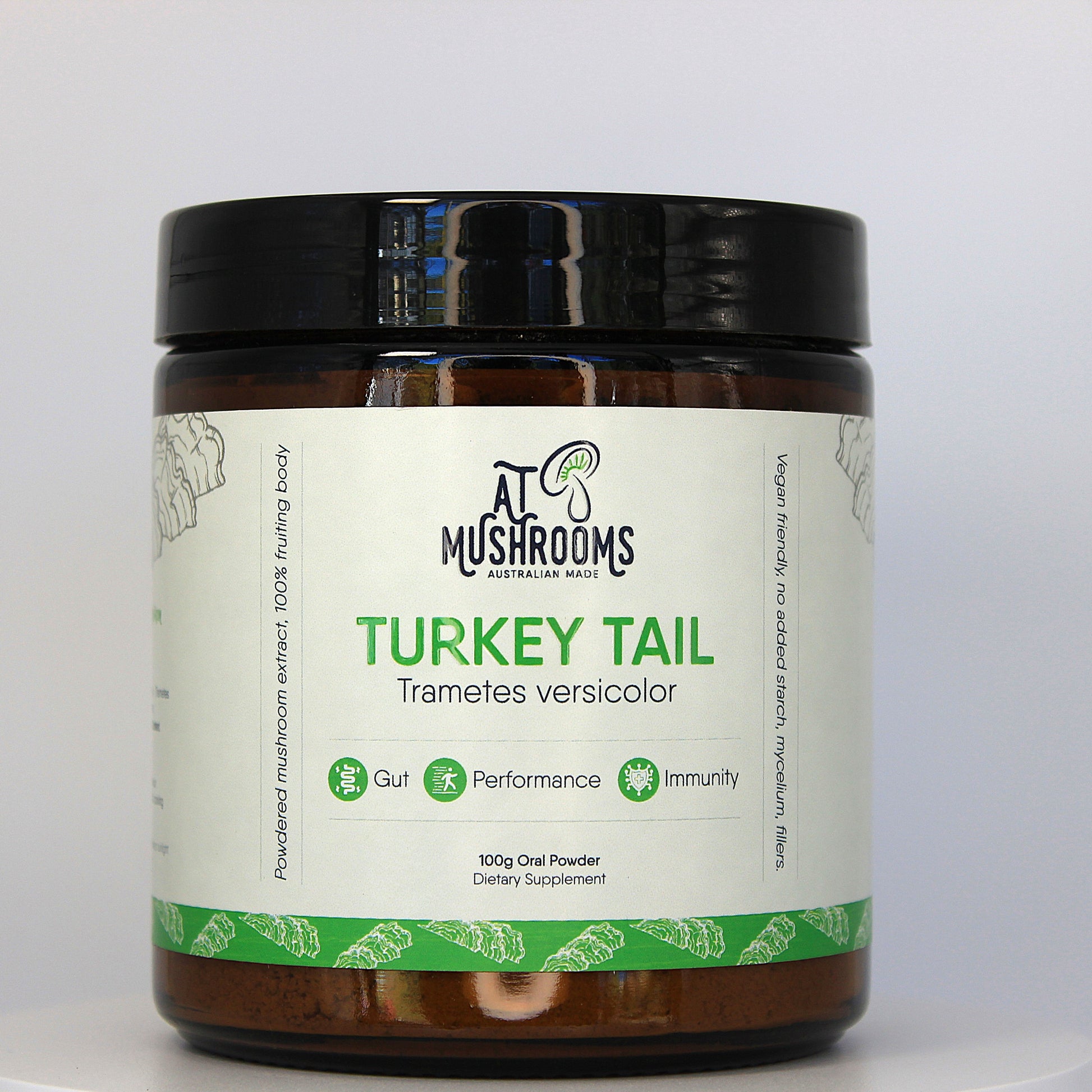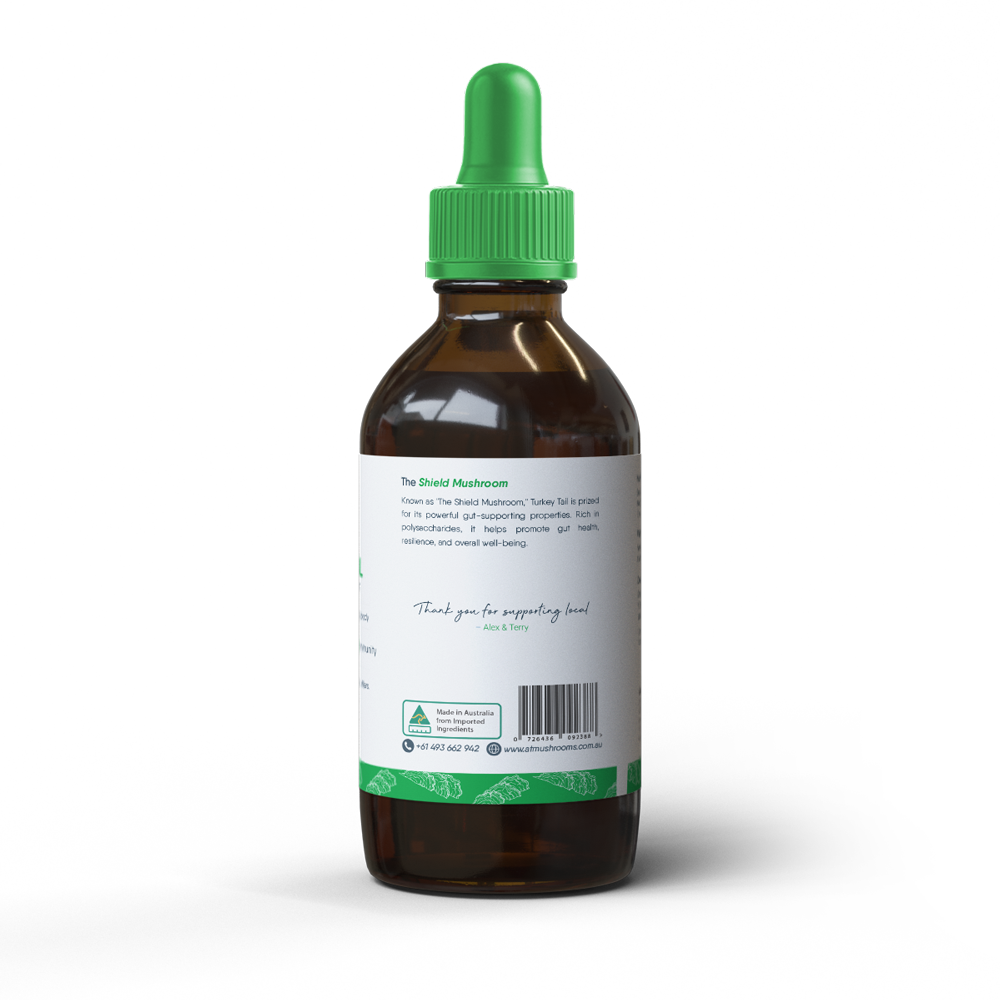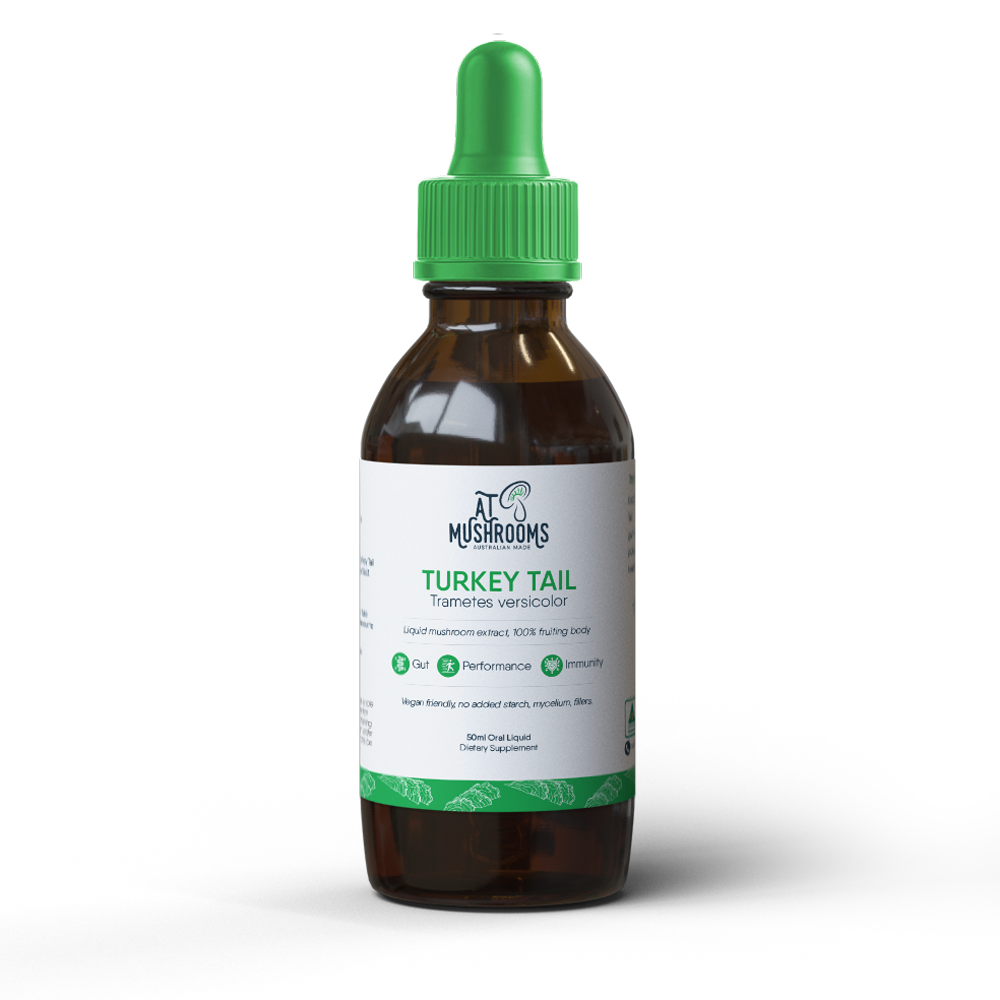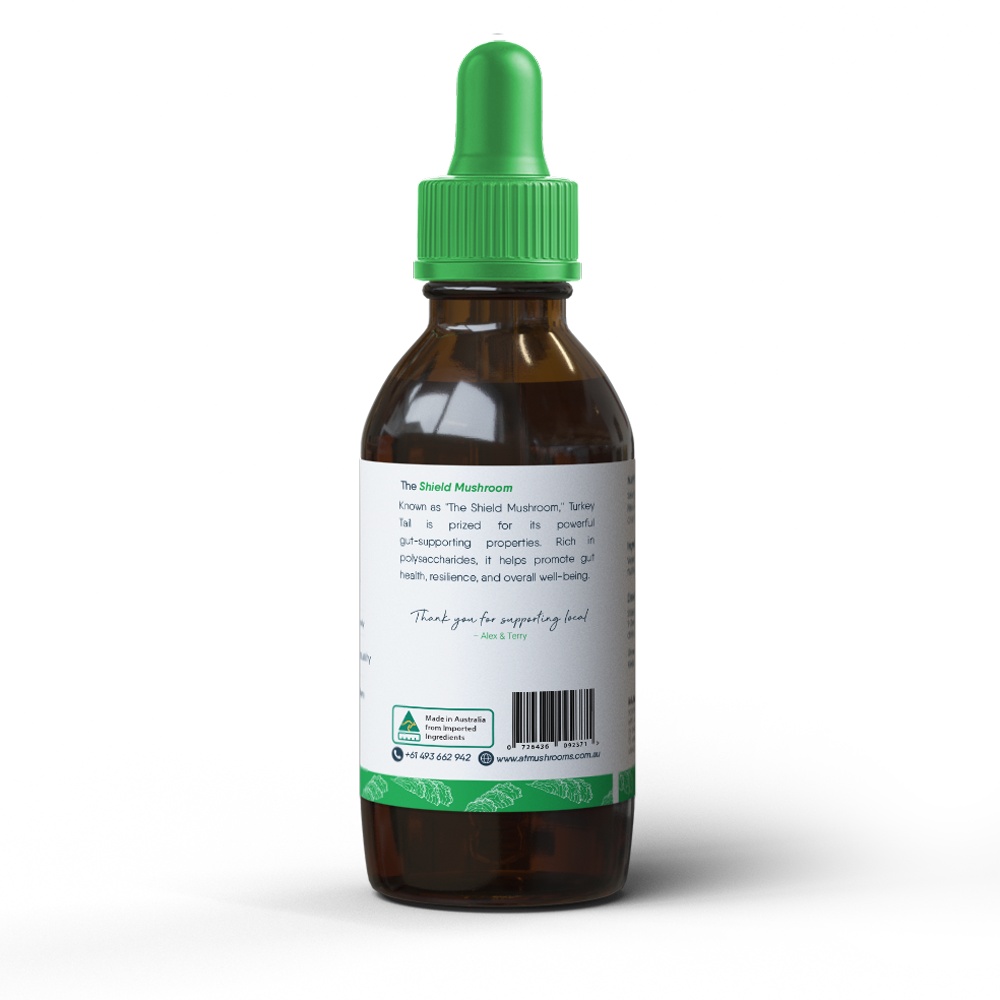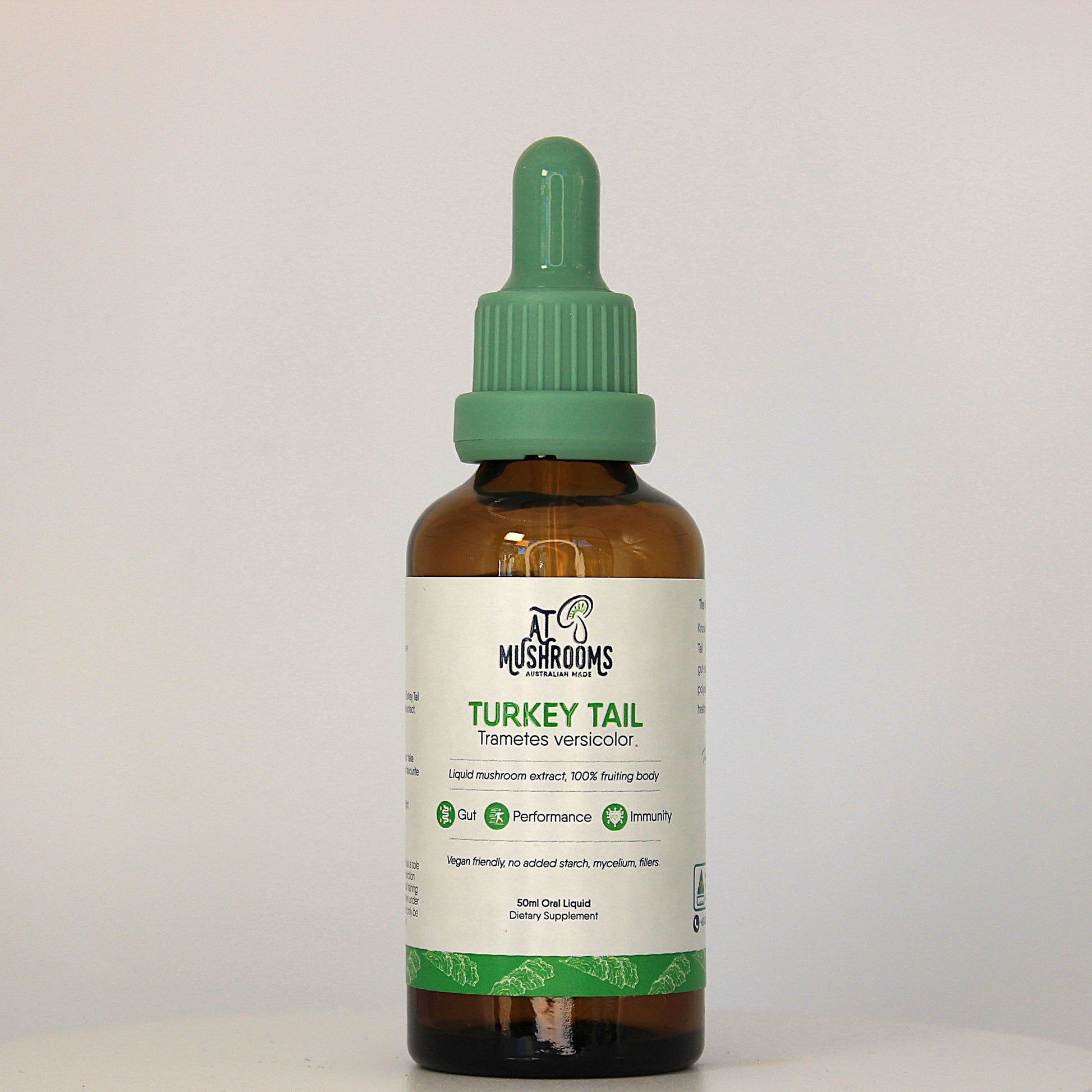Turkey Tail (Trametes versicolor)
Turkey tail mushrooms, notable for their vivid bands of color, form caps on dead or dying trees. Unlike other medicinal mushrooms, they don't have as varied a list of benefits. However, what they do, they do effectively.
In fact, it's the immune-boosting and cancer-busting properties that continue to amaze.
Immune boosting
- versicolor is rich in antioxidants that inhibit or reduce oxidative stress. Too much oxidative damage leads to cellular damage and chronic inflammation that fuels long-term disease.
Turkey tails contain a combination of antioxidants, including 35 different phenols and potent flavonoids like quercetin and baicalein42. Together, these compounds work on the COX enzymes and promote immune system health by releasing protective compounds43,44.
That's not all – polysaccharides (similar to maitake's D-fraction) activate and inhibit certain types of immune cells to downregulate inflammation. In particular, it stimulates dendritic cells (responsible for regulating immune response), monocytes (which fight infections), and natural killer cells (which guard against bugs and tumors)45,46.
Cancer treatment and prevention
Of the many benefits of mushrooms, cancer treatment and prevention are the most sought-after. Turkey tail mushrooms may be the real deal.
Polysaccharide peptide (PSK), responsible for its immune-boosting effects, also inhibited the growth of human colon cancer cells in an in vitro study47. In mice, Coriolus versicolor glucan (CVG), another polysaccharide, reduced the tumor size after daily administration48.
Animal studies only get you so far, however. A systematic review (the highest form of evidence) confirmed the findings, stating that PSK could improve the survival rates for colorectal and intestinal cancer patients49.
In one miraculous case, Paul Stamets, the world-renowned mycologist, discovered his mother has stage 4 breast cancer. Too old for radiation therapy, the situation seemed hopeless until she enrolled in a turkey tail mushroom trial. Telling his story at a TED MED talk, Stamets invited his now cancer-free mother on stage. (See the video here.)
Stamets later published a paper on the case, theorizing that the mushroom boosted the immune system's ability to detect and eliminate cancer cells, "thereby increasing the effectiveness of chemotherapy50."
A 2023 review concluded51:
"Findings from this review suggest that medicinal mushrooms have the potential to prevent lymph node metastasis, prolong overall survival, decrease chemotherapy-induced side effects (e.g., diarrhea, vomiting), affect the immune system, and help maintain immune function and quality of life in patients with certain cancers."
Indeed, further studies have even highlighted T. versicolor as a treatment for skin cancer (melanoma), noting its ability to induce cancer cell death52. Meanwhile, another study found that polysaccharide-protein (PSP) extracted from turkey tail mushrooms targets prostate cancer cells53. While it's not a cure, it's still one of the most potent anticancer ingredients in nature's pantry.
Gut health
Turkey tails have one more trick up their sleeve: balancing your gut bacteria. This ecosystem of microorganisms is critical to your overall gut health.
One test-tube study found turkey tail extract modified the gut bacteria composition, enhancing beneficial bacteria like Lactobacillus and Bifidobacterium while eliminating dangerous bacteria such as Staphylococcus54. These two healthy bacteria reduce not only digestive symptoms like diarrhea but also lower cancer risks and cholesterol levels55.
Related Mushrooms for Brain & Overall Health
Lion's Mane works synergistically with other medicinal mushrooms to support comprehensive wellness:
- Reishi - Reduces stress and improves sleep quality, creating optimal conditions for cognitive function
- Cordyceps - Enhances energy and mental clarity to complement Lion's Mane's cognitive benefits
- Chaga - The ultimate skincare mushroom with powerful antioxidants and melanin for anti-aging benefits
- 7 Mushroom Blend - Experience the combined power of Lion's Mane with six other premium mushrooms
Learn More About Medicinal Mushrooms
Expand your knowledge with our educational resources:
Deep dive down the mycelium rabbit hole and learn about the benefits of all the mushrooms by reading scientific studies from around the world.


